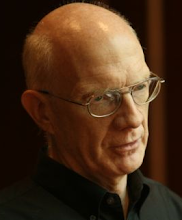I don’t know about you, but for me the most upsetting moment in “An Inconvenient Truth” came long after Al Gore scared the hell out of me, constructing an utterly convincing case that the very survival of life on earth as we know it is threatened by climate change. No, the really dark moment came during the closing credits, when we are asked to . . . change our light bulbs.Pollan was (rightly, in my opinion) decrying the symbolic-but-quantitatively-meaningless gestures found in the "green" movement. And, oh my goodness, are there a lot of them out there. Pick a green blog, any green blog, and you'll have to plow through things like recyclable clothes hangers. Give me a %&^$%# break! I recycle virtually 100% of my clothes hangers as it is -- doesn't everyone take their clothes hangers back to the cleaners, who gratefully accept (and, one assumes, re-use) them? "Recyclable clothes hangers" are not only fatuous, they actually break the first rule of being green, which is, "consume less stuff".
The green movement, well intentioned though it be, is just chock-full of this kind of silliness. What we need is some who will do the apparently Sisyphean chore of running the numbers for everything that we do as a society. All that we consume, and how, and all that we produce, and how. And then give us some idea of what we should be doing. Such a big and complex job that it just couldn't be done.
Until now.
Once again, a physicist has come to the rescue. David J.C. MacKay, of the Department of Physics at the University of Cambridge, has written a book. A brilliant book, a book that is free to download on the Web, at his website, withouthotair.
Go to the website and download this book right now.
MacKay has run the numbers on the global energy picture (well, the energy picture of Great Britain, which closely parallels that of the US) and has made an assessment of what we have to do. He lays out 5 different alternative plans for what we have to do, really, to become globally sustainable as developed society.
The book (can't call it a paper, really, though it strongly resembles a peer-reviewable scientific paper) is just full of good stuff. The final third or so is the "technical chapters" which (if you are the sort who enjoys reading "Scientific American") are enjoyable nonetheless. Because MacKay "shows all his work", and has published this book under the Creative Commons Attribution ShareAlike License, the book has the potential to become a reference for work of all kinds.
It's hard for me to say too many good things about this book (as you might have gathered by now). I've only read the (non-technical) parts through once, and quickly, but MacKay lays it all out.
As you might expect, vegetarianism gets its due, and (yes!) bicycling, but the most jaw-dropping thing that came from the book for me personally was the environmental cost of something I do quite a lot: flying. A transcontinental or trans-Atlantic flight has the same environmental impact as driving a car for a year. This is disquieting, to say the least, and has me doing research into advocacy for regional high-speed rail in the US. If any of you readers (all 3 of you) have information on this, let me know.
As you might not expect, the reading of this book is easy. It is (wisely) peppered with meaningful graphics and diagrams. Some of the information contained in the book has a deceptive sense of humor as well. (Let it not be said that physicists have no sense of humor -- I've known a few personally, and it ain't so.) Consider this chart in the "wind power" section that addresses the issue of how much a threat wind generators pose to avian life:

I mean, the facts are surprising, and refreshing in their own way, but the graphic presentation! I just love the little "kitty logo" on the left margin. There's something just so right about this. (And the offhand comment in the legend about "collisions with windows".)
Here's a quote from the book:
The myth that won’t die
The BBC is still banging the phone-charger drum in 2007: “turn off your TV, unplug your mobile charger and switch off lights when you leave a room” (Monday, 14 May 2007, http://news.bbc.co.uk/1/hi/uk/6653687.stm).
And on 6th June 2007, the Mayor of London launched ‘DIY planet repairs’, a public information campaign calling on citizens to ‘unplug, switch off and turn down’. Under the heading ‘Unplug’, we are advised:
If every London household unplugged theirmobile phone chargers when not in use, we could save 31 000 tonnes of CO2 and £7.75m per year.
Let’s think about these numbers. London’s population is about 7million. So what this ... is really saying is that if you unplug your charger, you’re saving 31 000 / 7million = 0.004 tonnes CO2 per year per person.
We should compare this quantity with the typical CO2 pollution per person, which is about 10 tonnes per year. So what the Mayor is recommending is: ‘Do your bit! Make a difference! Unplug the evil phone chargers, and reduce your CO2 pollution by less than one twentieth of one per cent!’Not the least, I appreciate MacKay's essential Britishness, and the fact that he uses words like "codswallop".
Please join me in a hats-off to David J.C. MacKay. Oh, and read the book!





No comments:
Post a Comment